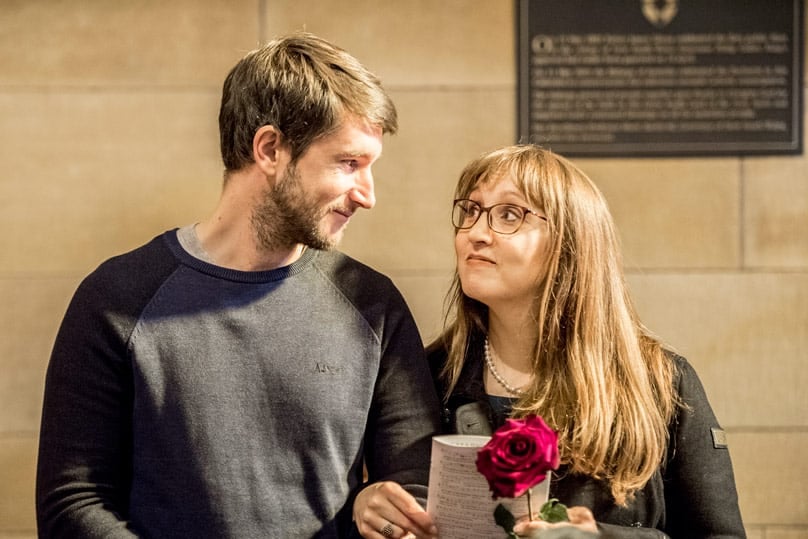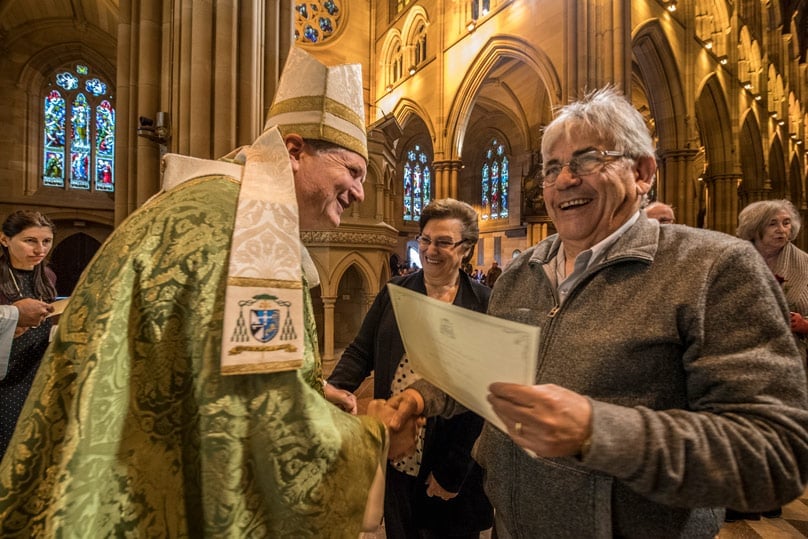
This week past the first results of last year’s controversial census were released. It told us that the typical Australian is a 38-year-old Catholic woman, born in Australia of Anglo-Celtic descent, married with two kids, living in her own three-bedroom home in Sydney. This average Aussie is educated to at least Year 12, in full-time employment but, since she’s a woman, she also does the lion’s share of the housework …

That’s the average Australian: the census also told us that most of us are not average Australians! There are, for instance, more Asian-born Australians than European-born ones, for instance. Lots struggle to get their own home, especially in Sydney, and – horror of horrors – Melbourne may soon be the biggest population centre in Australia. Most Australians still identify as religious believers, indeed Christians, but those with no particular religion are growing fast. And, for the first time in recorded history – in Australia or anywhere else – more than one in four Australians lives in a single-person household, another big chunk live with others to whom they are unrelated, and fewer than half our ‘families’ involve a mum, a dad and kids.

Many of the unmarried, of course, live as if they were married, often in a series of marriage-like relationships until they finally settle down to one in particular. And many of the married choose to postpone child-bearing. Yet most human beings apparently still aspire to marriage and family life as the place they will best flourish and serve. But we must recognise that many are, for one reason or another, single and hopefully still find ways to make the most of their gifts and build up the community.
Christianity was unusual amongst the ancient religions in making a space for unmarried life in religious communities, for the celibate clergy, for widows, and for single lay people. Indeed, our tradition has often valorised virginity very highly, drawing upon texts in which Jesus or St Paul sound almost anti-marriage. In our Gospel this morning, for instance, Jesus seems to be telling people to hate parents, children, security, even their own life, or at least to regard them as less important than following Him (Mt 10:37-42). It’s a funny Gospel with which to celebrate our Annual Archdiocesan Marriage Mass!

Well, let’s look a little more deeply into our text. In the background is Jesus’ rather cryptic summary of the whole Jewish Law and the Christian life as loving God and neighbour (Mt 22:35-40; Mk 12:28-34). If we put God first, Jesus suggests, loving Him with all our heart and soul and strength, and make His will our own, then far from failing to love ourselves or others, we will love them more purely, intelligently, intentionally, appropriately. As people used to say about marriage: if you want it to last, make sure it is between three parties, not two – husband, wife, and God.

Jesus goes on with instructing us about what kind of loving that will require. It must be a welcoming, hospitable, serving kind of love. “Anyone who welcomes you welcomes me; who gives a cup of water to my disciple gives it to me.” So love of God finds its expression not only in acts of prayer, worship and adoration of God – crucial as these are – but also in acts of service of our loved ones and of strangers.
This is not a kind of love that displaces God, as certain kinds of secular do-gooding might do, but a kind of love that sees the image of God in every human being, even in apparent enemies. If we can learn to love God in everyone, in everything, then we can truly say that whatever has our particular attention in the particular moment, we are still loving God first and foremost.
We see an example of this in our Old Testament story this morning (2 Kings 4:8-16). An elderly couple who have long struggled with infertility recognise that there are other ways to nurture the young and needy. They offer the itinerant single man Elisha a base, a warm bed and food, for any time he is passing by on his prophetic ministry. He, in turn, prays for God to grant them the gift of a son, even in their old age. The story demonstrates to us the close inter-relationships between love of God and neighbour, as between godly single people, godly spouses and future families, and the need for an ordered, intelligent, and appropriately expressed love that is more than simple sentimentality.

Love is, in fact, the easiest and the hardest thing in the world. It’s easy because it’s a force of nature, that “the madness of the gods” (as the ancient Greeks called it) that is equally felt by men. Attraction, affection, desire: these things come to us very naturally, fill us with delight, expand our hearts, our humanity, and are ultimately rooted in love of God. Thus the vocation to marital love and the marriage-based family is given in our very human nature and confirmed by God’s blessing.
Yet love is not just a warm marshmallowy feeling or a demigodly passion: love is largely a choice, a commitment, a matter of mind and will, a free gift of the self to another for that other. And that requires constant attentiveness, communication, forgiveness, honesty, fidelity, a willingness to compromise your will for the sake of the other, to make their good your own. To love when the loving is hard, with Christ’s kind of love, love unto death, the love He describes today as “taking up the Cross and following in my footsteps” kind of loving. And that kind of selflessness does not always come so easily. Perhaps the greatest sign and also the greatest test of that kind of love is family: the vocation of co-creating with God, accepting and nurturing new images of God in love and religion. And that is surely something we cannot do by human effort alone.

There’s a Peanuts cartoon in which grumpy Lucy complains to her little brother Linus that she’s never had and will never have the blessings or breaks that others get, that nothing ever goes right for her. What, she asks, has she to be thankful for? To this Linus says, ‘Well, for one thing, you have a little brother who loves you …’ At this Lucy stares at him before tearfully embracing him, and Linus observes that every now and then he just happens to say the right thing!
Loving God and neighbour, purely, intelligently, intentionally, appropriately – in other words virtuously – does not always require grand gestures like giving thousands of dollars to the restoration of St Mary’s Cathedral Roof Appeal – though I’d be very happy to hear from anyone with a few million, or thousands or even dollars to spare! Normally, we love God and neighbour – loving both in marriage and family life – in the little things, the daily grind, the small acts of kindness, the persevering when it’s exhausting or emotionally unrewarding, in offering our love to others. Jesus said the poor widow’s mite was worth more than all the treasure others had given: “For they all contributed out of their abundance; but she out of her poverty has given her all.” (Mk 12:44)
This is the edited text of the homily by Archbishop Anthony Fisher OP for the thirteenth Sunday Ordinary Time Year A + annual Marriage Mass at St Mary’s Cathedral, Sydney, 2 July 2017.
